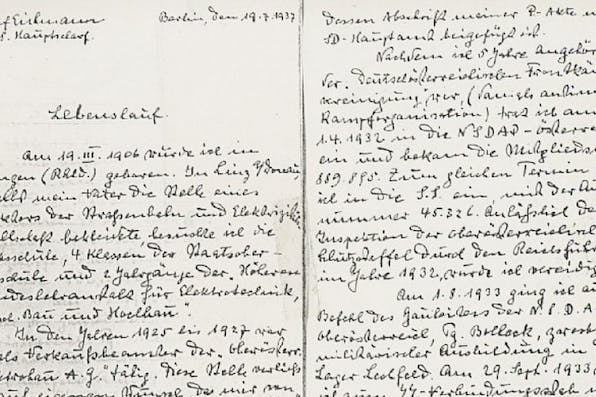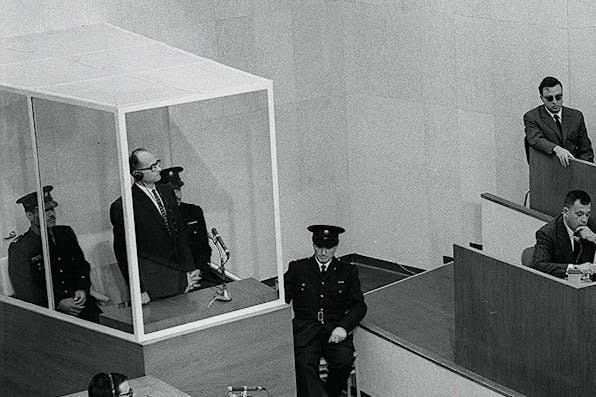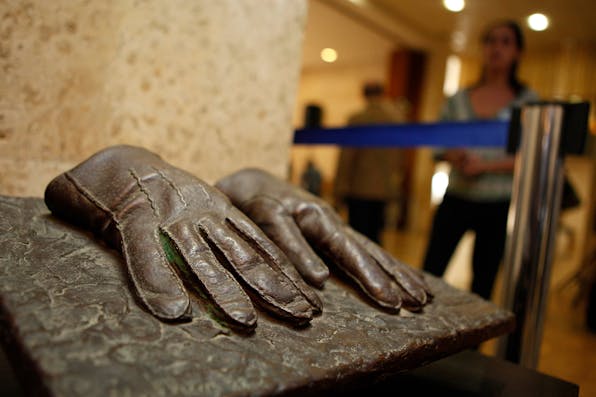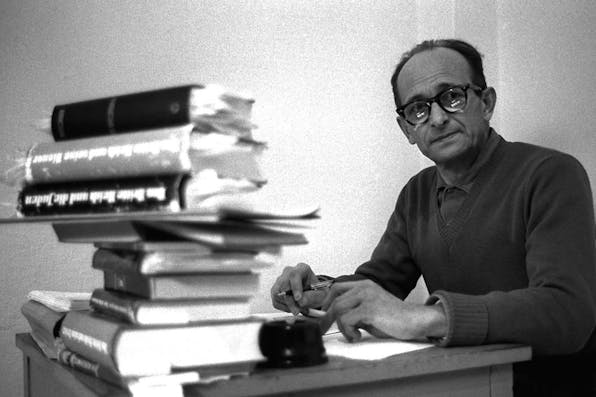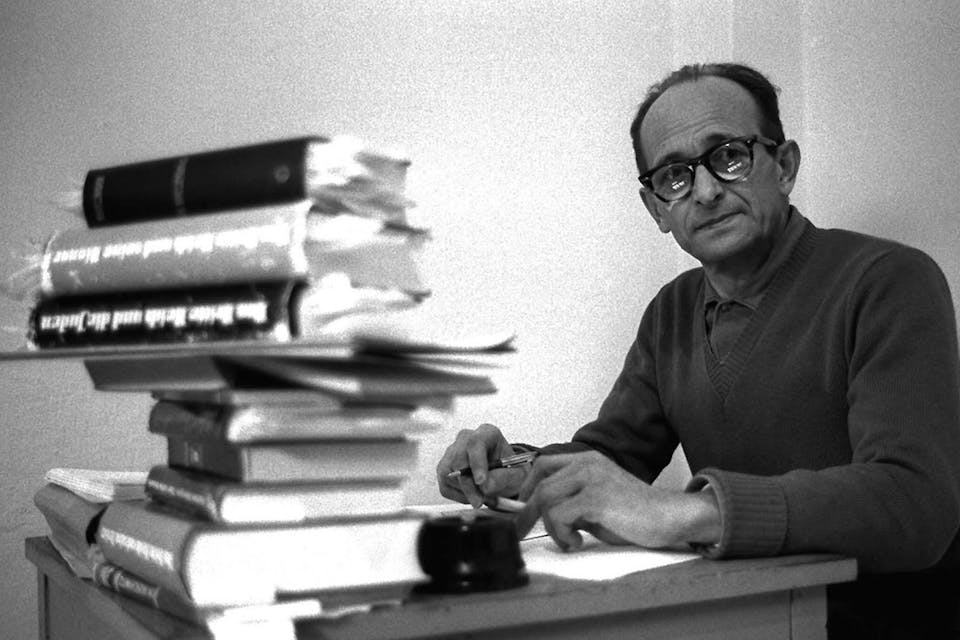
June 29, 2020
The Misrepresentation of the Past in the Cinema
The dangers lurking in false portrayals of the Nazi official show why Holocaust films must be held to account.
I am grateful to Yaacov Lozowick, Walter Reich, and Jonathan Tobin for their responses to my essay in Mosaic, “The Truth of the Capture of Adolf Eichmann.” Where I wrote primarily about contemporary American perceptions of Eichmann as mediated by Hollywood, and about the Israeli accounts of his captivity on which these perceptions have come to be based, each of my respondents has widened the lens to take in broader subjects.
Thus, Yaacov Lozowick, revisiting Hannah Arendt’s famously reductive portrait of Eichmann as epitomizing the bureaucratic “banality of evil,” now finds in my essay some reason to rethink his own past approach to that issue. Walter Reich, reminding us not to expect too much of Holocaust movies, underlines the enduring significance of the Eichmann trial itself. Jonathan Tobin argues that attempts to balance portrayals of Eichmann reflect “the discomfort Jews themselves have with the use of power,” especially when exercised by the state of Israel.
I don’t claim authority on any of these angles of the Eichmann story. But since my respondents have pushed the discussion in new directions, I’ll follow their lead. Below are my impressions—which are not to be confused with fully researched findings.
